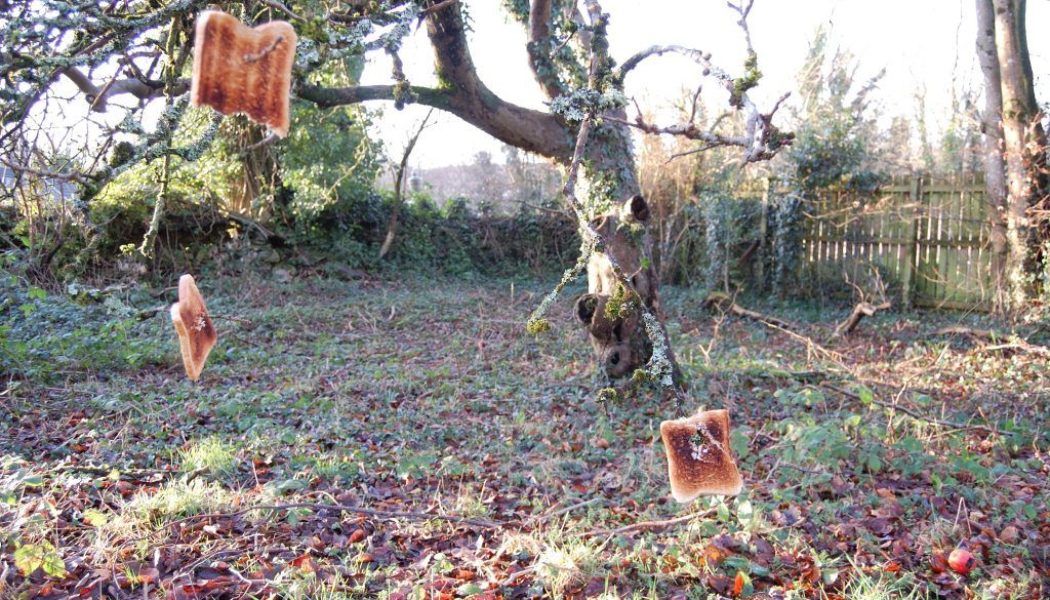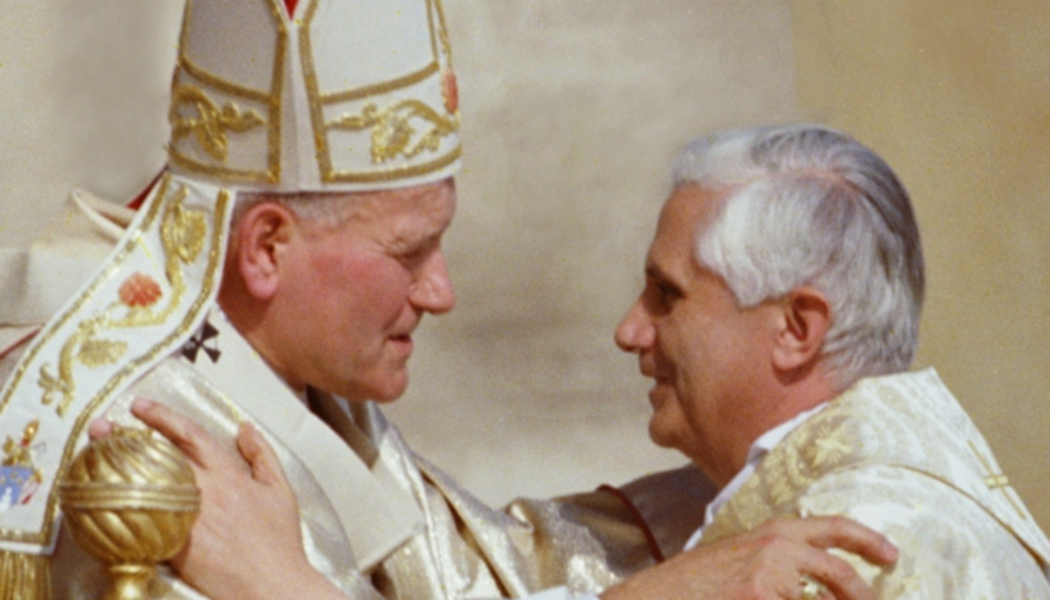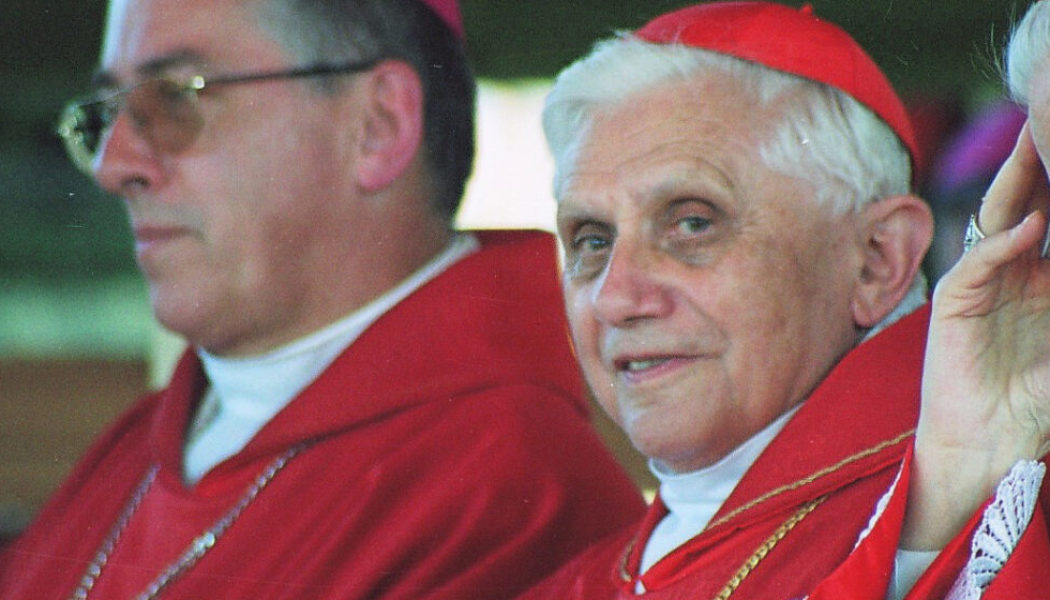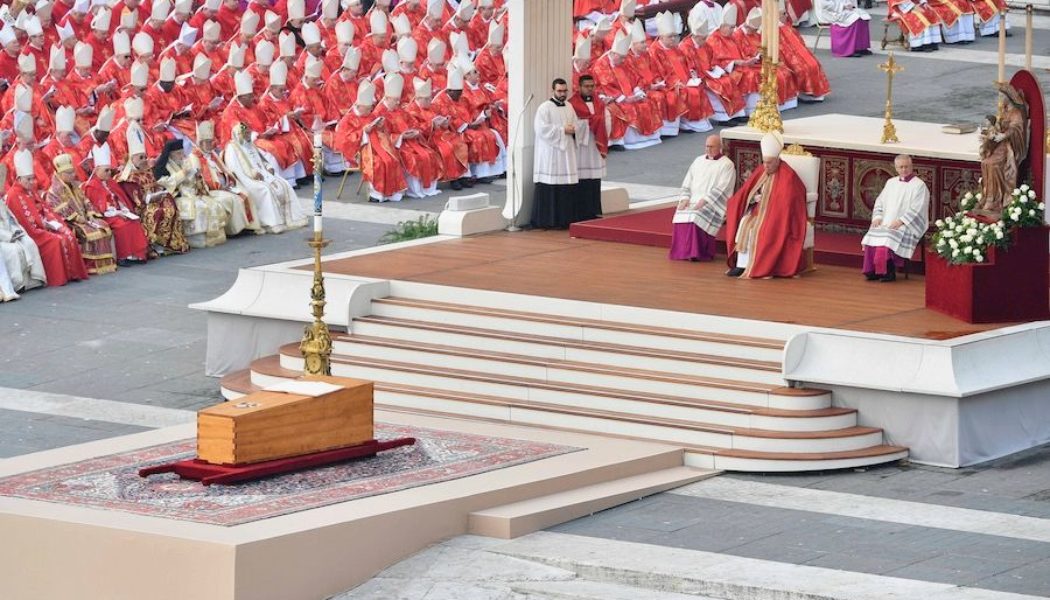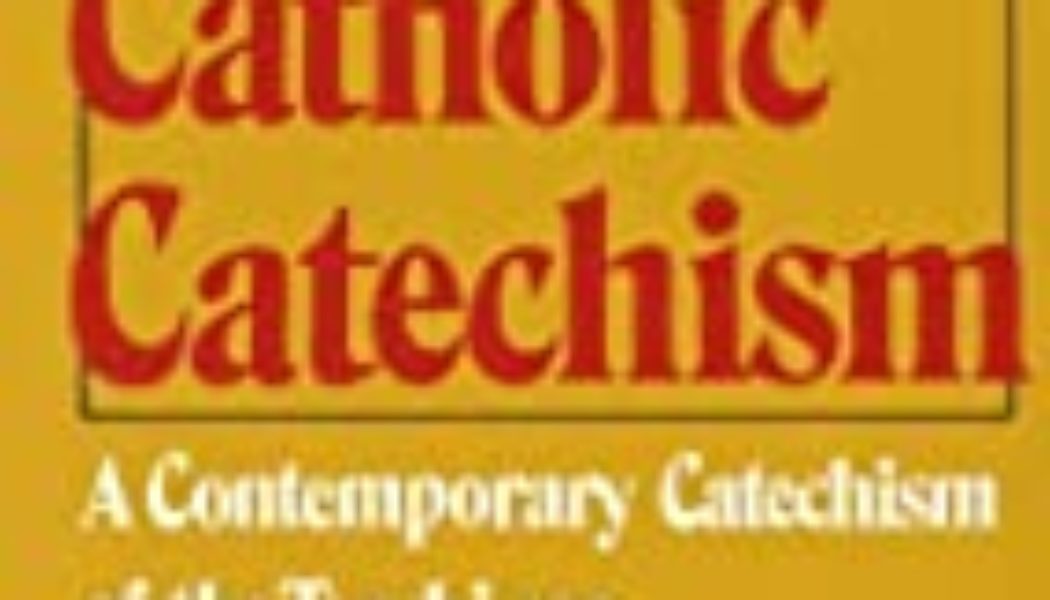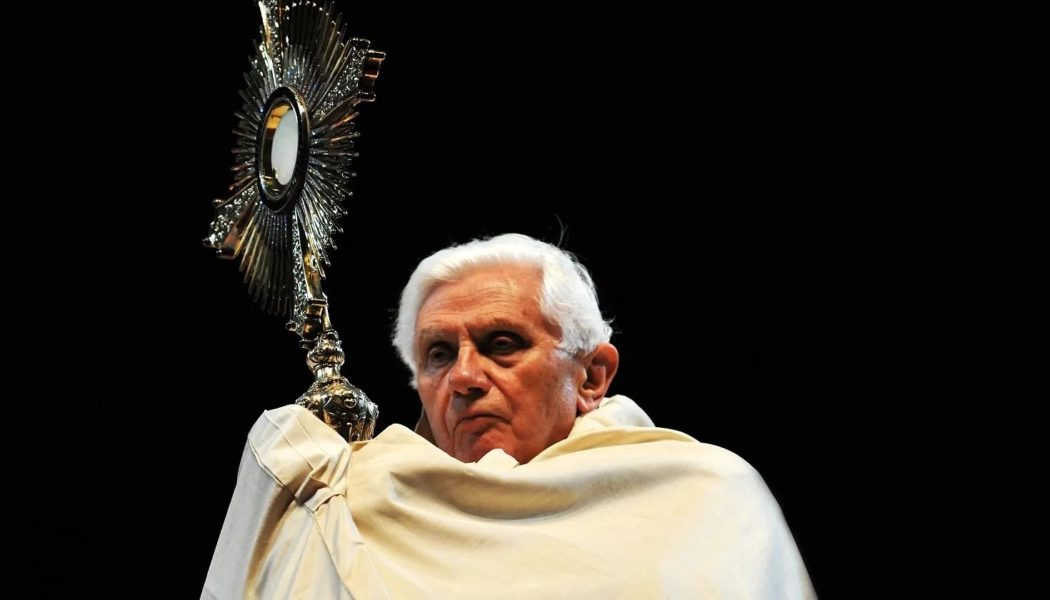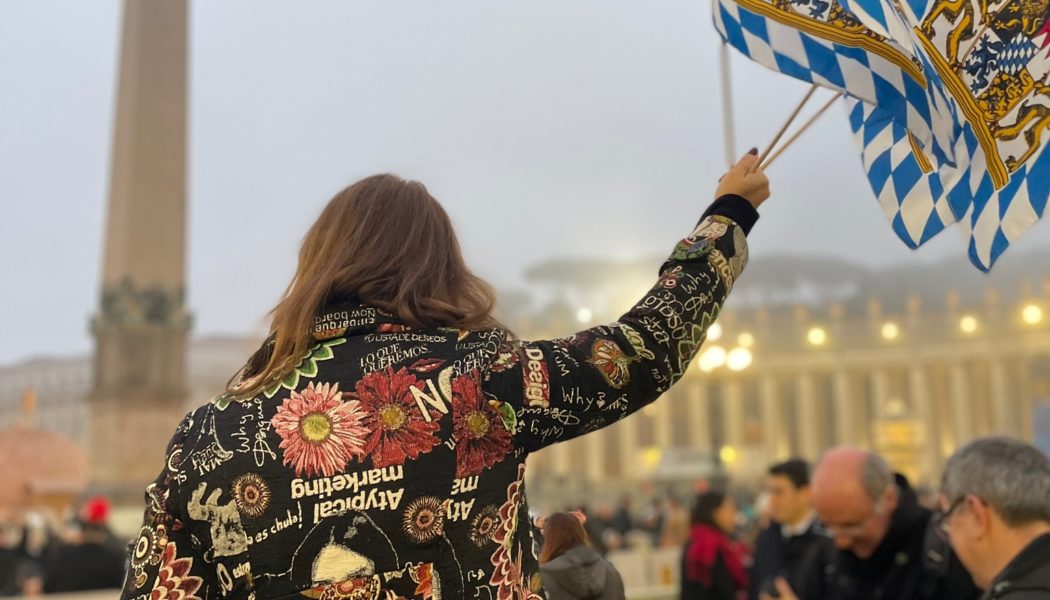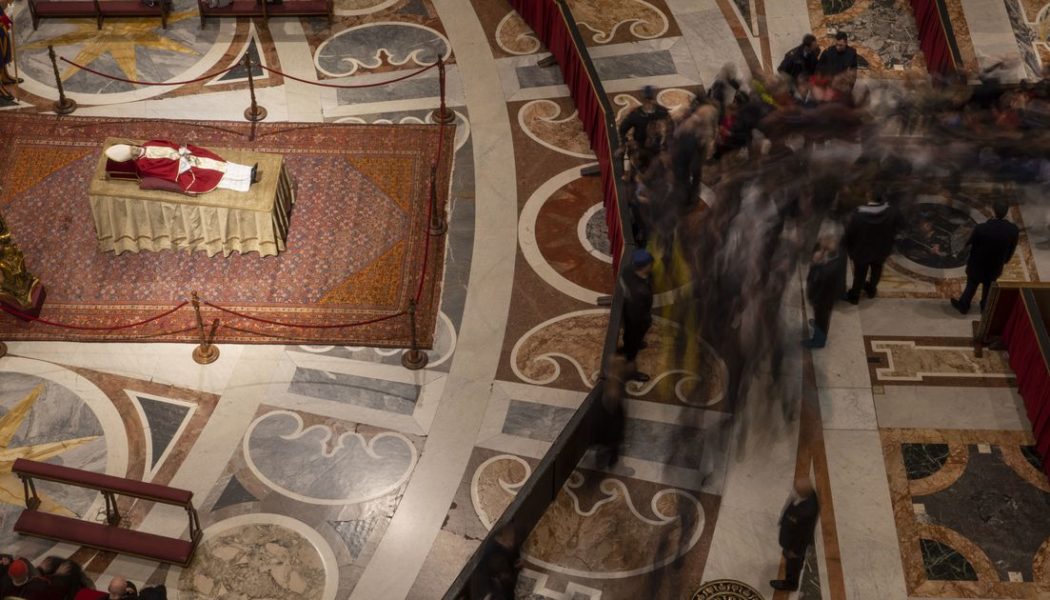Discover
Wassailing in Rome, goodbye to ‘Father Benedict,’ and how I got here…
Happy Friday friends, And a very happy Epiphany to those of you who celebrate it today. I know that in many places the feast is transferred to the Sunday, but here in Rome they still keep the day on the day, so to speak. It’s been an interesting few days for JD and me, here in Rome to cover the funeral of Pope Benedict XVI. We’ll get to all of that in a second. And hopefully we have a few more friends to see and catch up with before we head home over the weekend. But I have to admit to a certain sadness to being away from home today. As JD has mentioned on the podcast more than once, I take the celebration of Christmas very seriously, and I make a real effort to keep making merry right through until today’s feast, when my wife and I usually host a Twelfth Night party at our house. We had t...
Arkansas monastery’s altar desecrated with sledgehammer, 1,500-year-old relics stolen…
“Throughout this, our monks continued with our regular communal prayers. Now that the gentleman has been caught and justice will proceed, may we also offer a prayer for him,” the abbey said. “Due to the desecration of the altar, Abbot Elijah and the monastic community will undertake the penitential rite, reparation for the desecration, and offer a Mass of Reparation,” the abbey said. The altar has been “stripped bare” and “all customary signs of joy and gladness have been put away,” the abbey said. A portable altar will now be used until repairs are made, the abbey said. More in US The vandalism of the altar took place under the Crucifix gracing Subiaco Abbey. Subiaco Abbey Police said that Farnam also entered a vacant house near the abbey. An item from the house was found in Farnam’s truc...
Benedict desired that, after his death, the world would hear one more time that the faith was reasonable…
The “reasonableness of faith” is what Pope Benedict XVI taught to an age hostile to faith and lacking confidence in reason. In his “Spiritual Testament,” written in 2006 and released upon his death, Pope Emeritus Benedict XVI wrote about faith, which was to be expected, but in a way unusual for a final testament. He desired that, after his death, the world hear one more time that the faith was reasonable and that philosophical and scientific approaches that claimed otherwise were themselves deficient in their reasoning. In Life and Death: Faith! Benedict, the consummate scholar, makes an argument from the grave in his “Spiritual Testament”: “It often seems that science — the natural sciences on the one hand and historical research (especially exegesis of Sacred Scripture)...
Meeting (the future) Pope Benedict…
After my first year as a graduate student at the University of Notre Dame, I had the chance to meet then-Cardinal Joseph Ratzinger in person. I attended his small Mass for a group of about 25 German pilgrims in the Vatican and got to receive Holy Communion from him. After Mass, he knelt alone in prayerful thanksgiving. As he arose from prayer, I approached him, along with a couple other graduate students. I wasn’t sure what to expect. At that time, after only Pope John Paul II and Mother Teresa, he was the most well-known Catholic in the world. He had no entourage, no security, and no plan to start his day with lowly graduate students. We introduced ourselves, and then he asked us individually about our studies. I’m sure he must have had much to do, a schedule packed with meeting thos...
Pope Francis Issues Apostolic Constitution ‘In Ecclesiarum Communione’ Reorganizing Diocese of Rome in Face of ‘Epochal Change’…
Cardinal Angelo De Donatis is vicar of Rome, which has seven auxiliary bishops. Pope Francis on Jan. 6 appointed Rome auxiliary Bishop Baldassare Reina the vicariate’s new vicegerent. The pope also, with a decree, changed the assignments entrusted to each auxiliary bishop. In the reorganization, Pope Francis emphasized a synodal approach, including the operation of an episcopal council, “the apex place of discernment and of pastoral and administrative decisions concerning the Diocese and Vicariate of Rome.” According to the new constitution, the council, which consists of the vicegerent and auxiliary bishops, should meet at least three times per month, and be presided over by Pope Francis, or, in his absence, Cardinal De Donatis. Article 1 of the constitution states that “every activity ca...
What do we make of this viral video that apparently shows a kneeling man being refused Holy Communion at Benedict’s funeral?
Soon after the funeral of Pope Benedict XVI, a video began circulating online, which appeared to show a man being denied Holy Communion at the Mass, as he knelt before a priest distributing the Eucharist and attempted to receive on the tongue. The video was apparently an excerpt from Vatican Media’s own broadcast of the funeral. And, of course, the video is without sound or context — any possible extenuating circumstances or additional information is not available to those who view it. There is only a story told in a few seconds of video — a man kneels, removes the hood of jacket, a priest says something to him and pulls back the sacred host, the man seemingly attempts again to receive it as he rises from the ground, and the priest seems to rebuke him. The man, and a woman behind him in li...
My friends returning to the Church say they can receive Communion without going to Confession first. What should I do?
From a reader… QUAERITUR: After a number of years away from the faith of my childhood, I made the decision to return to the Catholic church. After attending a few masses, my heart longed to receive the Eucharist, so I made the necessary appointment to go to confession at the parish. In my youth, we were instructed to go to confession every 2 to 3 months or as the need arose after an examination of conscience. And I have done this. Each time I received absolution and prayed my penance and reread Psalm 51. During mass, I would repeat my prayers and my Act of Contrition before receiving Jesus again.Recently people I know who have also been away from the church for years asked me to take them to mass. I did so. But when it came time for communion, they...
How the James Webb Space Telescope changed astronomy in its first year…
As Christmas approached last year, astronomers and space fans around the globe gathered to watch the much-anticipated launch of the James Webb Space Telescope. Though a wondrous piece of engineering, the telescope was not without its controversies — from being way over budget and behind schedule to being named after a former NASA administrator who has been accused of homophobia. Despite the debates over the telescope’s naming and history, one thing has become abundantly clear this year — the scientific ability of JWST is remarkable. Beginning its science operations in July 2022, it has already allowed astronomers to get new views and uncover mysteries about a huge range of space topics. The most pressing aim of JWST is one of the most ambitious projects in the recent history of...
J.R.R. Tolkien discusses fairy tales and fantasy, and explains why there’s no such thing as writing ‘for children’…
“I do not believe that I have ever written a children’s book,” the great Maurice Sendak once said in an interview. “I don’t write for children,” he told Colbert. “I write — and somebody says, ‘That’s for children!’” This sentiment — the idea that designating certain types of literature as “children’s” is a choice entirely arbitrary and entirely made by adults — has since been eloquently echoed by Neil Gaiman, but isn’t, in fact, a new idea. On March 8, 1939, J.R.R. Tolkien (January 3, 1892–September 2, 1973), celebrated as one of the greatest fantasy writers in history, gave a lecture titled “Fairy Stories,” eventually adapted into an essay retitled “On Fairy-Stories” and included in the appendix to Tales from the Perilous Realm (public library). At the crux of his argument, which explores...
This Sunday, follow the star with Pope Benedict…
Pope Benedict XVI considered the story of the Magi, the star, and the Baby Jesus a master story for the Christian life, and it is perhaps no coincidence that we will hear that story at The Epiphany of the Lord celebration so soon after his death and funeral. In 2005, Pope Benedict XVI became pope and one of his first major events was World Youth Day. The event took place in and around the cathedral in Cologne, Germany, which houses the relics of the three wise men, so the Epiphany story made an appearance in nearly all of his remarks. Below find words of his from several Cologne addresses, rearranged according to the themes presented in the Epiphany Gospel. The Journey We Take The Gospel says: “And behold, the star that they had seen at its rising preceded them, until it came and stop...
‘Generation Ratzinger’: In Death, Benedict XVI Will Have ‘New Impact’ in Battle Against Anti-Catholic ‘Synodal Way’ Initiatives, Say German Faithful …
VATICAN CITY — Benedict XVI may have been laid to rest yesterday, but his impact on the Church is far from over. In fact, German Catholics are hopeful that Benedict’s passing will usher in a new era of his influence on the Church in their homeland — particularly at a time when the Church in Germany continues to be rocked by the much-criticized Synodal Way. “The fact that Benedict died at this moment of crisis brings up all his books, all the truths he brought forward, all the things he already told us, especially as Germans,” said Birgit Kelle, spokeswoman for New Beginning (Neuer Anfang), a movement of German Catholics opposed to the Synodal Way. “This has to have a new impact on the discussion in Germany. Because this man stood for everything [Synodal Way activists] don’t want.” In parti...
Pope Benedict’s crucial answer to Nietzsche about guilt and sin…
Among the peculiarities marking the pontificate of Pope Benedict XVI is the fact that he neither condemned nor ignored one of the most influential German philosophers of our era, Friedrich Nietzsche, the one who famously proclaimed the death of God in our times. In the first and most moving encyclical of his pontificate, Deus Caritas Est (God Is Love), released on Christmas Day in 2005, Benedict unpacked the significance of divine love in relation to human desire, or what the Greeks call eros. To do so, he quoted an aphorism from Nietzsche’s Beyond Good and Evil: “Christianity gave Eros poison to drink; he did not die of it but degenerated — into a vice.” According to Nietzsche, Christianity ruins what is highest in us, the jubilant celebration of life that is erotic desire, by infecting i...
